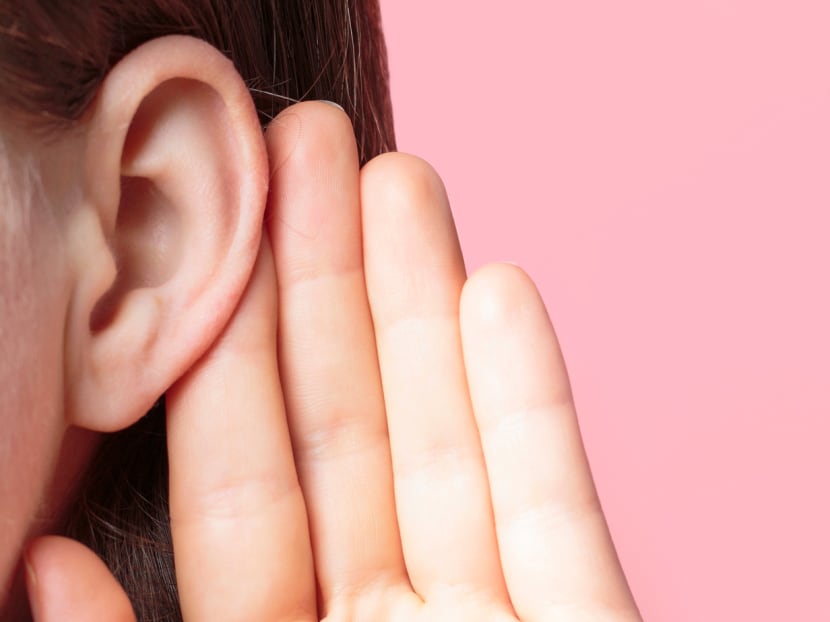Why do some people hear a constant ringing in their ears? Is it normal?
That phantom noise is called tinnitus and experts say it may worsen with age. Here’s what you can do to prevent that.

(Photo: iStock/Tatiana)
Do you sometimes hear a ringing, buzzing, humming or hissing that no one else seems to be bothered by? It may be constant or it may come and go. The noise can be so loud that it interferes with your ability to concentrate or hear the sounds around you.
As enigmatic and frustrating as it is, this phantom sound is very real and it is what the experts call tinnitus.
“It appears to affect those aged 40 to 55 years most,” said Joyce Lim, a senior tinnitus counsellor at Changi General Hospital (CGH). Globally, it affects 40 per cent of the population and like hearing loss, tinnitus increases with age.
BLAME IT ON AGEING AND LOUD NOISES
Back when you were head-banging to heavy metal or going clubbing in your teens, figuring out where to get your next ear piercing was probably more important than safeguarding your hearing.
Fast forward a few decades later and you’re likely to be bearing – or hearing – the consequences now. That’s because other than hearing loss, tinnitus can also be the result of exposure to loud noise.
A common cause of tinnitus is the damage sustained by the inner ear hairs, according to the Mayo Clinic. These delicate hairs move to the pressure of sound waves and send electric signals through the auditory nerve to your brain, which it then interprets as sound.
It’s all good when these tiny inner ear hairs are upright, noted the Mayo Clinic, but when they become bent or broken (usually through ageing and the cumulative effects of loud noises), they “leak” random signals to your brain, creating tinnitus.
Also, these hairs can’t regenerate. Once they’re damaged by a teenhood of loud music, the brain compensates for your diminished hearing ability by randomly tuning up the auditory system, leading to tinnitus, explained Lim.

Other causes of the persistent ringing could be “a dysfunction of the inner ear, auditory nerve and even possibly, the central nervous system”, said Lim. “Nerve cells in these regions are activated without a sound stimulus, giving the sufferer tinnitus.”
The ringing or buzzing is usually perceived in both ears, although it can be one-sided.
LESS COMMON CAUSES
The most recent Hollywood portrayal of tinnitus is probably from the movie Baby Driver, which features a young getaway driver with tinnitus caused by a car accident in his childhood.
That can happen in real life, too, when head or neck injuries affect the inner ear, according to the Mayo Clinic. In such situations, the tinnitus typically occurs in only one ear.

In rare cases, pulsatile tinnitus can be caused by a blood vessel disorder, said Dr Lim. This occurs when a combination of age and cholesterol build-up leads to a loss of elasticity in your major blood vessels.
When this happens to the vessels located near your ears, you can hear the force of the blood flow with each heartbeat. Other factors can also create this phenomenon, including high blood pressure as well as head and neck tumours.
Sometimes, tinnitus can be created by something as common as earwax. According to the Mayo Clinic, when too much wax accumulates, it hardens, irritates the eardrum and results in tinnitus.
Some medicines can also lead to the hearing condition, such as antibiotics, aspirin, diuretics, and certain antidepressants and cancer medicines.
IS THAT THE SOUND OF SILENCE?
What about the occasional ringing you hear or when you’re in a quiet room? Is that tinnitus? Your brain automatically tunes up the auditory system whenever you are in silent mode, said Lim, resulting in that high-pitched “eee” that resembles TV’s off-air sound effect (Google it if you were born after the 80s). And the more you focus on it, the louder your brain turns it up.
The good news is, it is perfectly normal to hear that sound. “It usually lasts for less than five minutes and happens less than once weekly,” said Lim.

WHEN TO SEE A DOCTOR
If your tinnitus is one-sided and is accompanied with hearing loss, giddiness, facial weakness or numbness, see a doctor, said Dr David Low, a consultant with CGH’s Department of Otorhinolaryngology - Head & Neck Surgery.
"If the hearing loss is sudden, see a doctor urgently. You should also see a doctor for any degree of tinnitus or hearing loss that is bothersome, and affecting your quality of life," he said.
Other than that, there are some simple measures that patients can undertake themselves, said Lim. "We recommend the use of soft sounds from tinnitus phone apps, maskers, televisions or music players to decrease the perception of tinnitus until the sufferer falls asleep."

SAFEGUARD YOUR HEARING
“The amount of noise exposure is highly correlated to the severity of tinnitus later on in life,” said Lim. Not that you can turn back the clock but you can minimise further damage to the inner ear hairs by turning down the volume, especially on your earphones or headphone. If noise exposure is inevitable, consider wearing ear plugs and muffs.
We’ve established earlier on that cardiovascular health can affect your chances of developing tinnitus, so lead a healthy lifestyle to keep your blood vessels healthy. “Unknown to most people, cardiovascular health is a risk factor for hearing loss and/or tinnitus,” said Lim.







